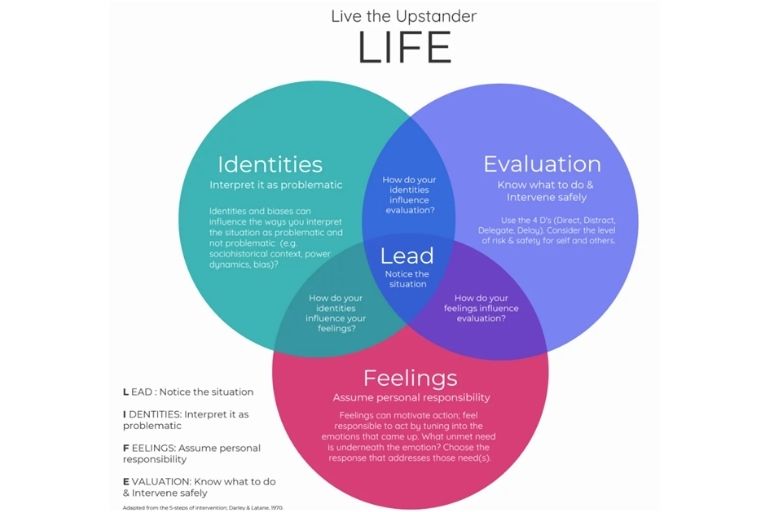We just completed two whole months since the semester began. How has your semester been? How have your actions for gender equity and allyship been going? Like many other things, allyship is a lifelong journey during which one experiences much satisfaction but also some frustrations including reflections on one's own successes and failures and the emotions related to those. One of the biggest challenges that allies face is acting as an “upstander” instead of a bystander calling out bias on the spot or in the moment or following up with a victim of discrimination. However, despite its challenging nature, upstanding is too crucial to allyship for allies to neglect it. That is because the silence of bystanders, who are usually colleagues and peers of the victim, adds to the detrimental effects of bias incidents, both on the victim and gender equity writ large. The silence normalizes discriminative language and other actions toward women in an organization. In organizations with a “culture of silence”, victims of gender bias endure a heavy emotional and psychological toll, which is exacerbated by the seeming indifference of their colleagues. In the words of Martin Luther King Jr.: “In the end, we will remember not the words of our enemies, but the silence of our friends.” This week, we will discuss why bystander intervention (upstanding) is essential in changing our IUB campus climate on gender equity and ways to improve allies’ confidence and capacity to be an upstander.
We also encourage you to learn about our upcoming workshop this week, offering a collaborative learning opportunity to improve your skills and confidence as an upstander.



